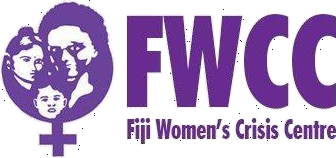On the first day of the Fifth Pacific Regional Meeting on Violence Against Women on Monday (June 8), women leaders in the field of eliminating violence against women outlined some of the challenges they face in their work.
The most heart-wrenching report of the day was from Tonga. Of the six murders reported from January to May, five have been domestic-violence related homicides. The most recent death of a woman was two weeks ago. In that case, the woman had told police she was afraid for her life since her husband was threatening her with a knife.
However the police acted too late in alerting the Tonga National Centre for Women and Children (TNCWC), the main organisation for survivors of domestic violence and sexual abuse. Police referred the case to the centre the morning after the woman was murdered by her husband, said Ofa Ki-Levuka-Guttenbeil of the TNCWC.
Since January, the TNCWC has received 102 domestic violence cases, six sexual violence cases and four child abuse reports.
In PNG, practitioners spoke of having to deal over the past year with an increase in the murders of women who have been accused of being involved in sorcery, especially in the Highland provinces. PNG police figures indicate that in 2008, more than half of all murders were sorcery-related.
Participants from the Solomon Islands raised concern about the narrowness of criminal laws to cater for specific forms of violence against women and girls, apart from assault.
The Kiribati participant, Maere Tekanene, described the challenge of convincing male leaders of the reliability of alarming statistics on violence against women gleaned from a national survey. Apart from male attitudes, some women also accepted violence perpetrated against them, blaming themselves for being beaten.
However, with all the depressing challenges, there have some been some achievements in moving towards a violence-free Pacific in the four years since the last Pacific Regional Meeting on Violence Against Women.
Vanuatu has made major headway with a Family Protection Act, the redefinition of rape to include rape with objects, and the amendment of the Penal Code to include child pornography.
In Papua New Guinea, there have been many advances in the legal arena, such as through the establishment of the Family and Sexual Violence Unit in Port Moresby that is to be rolled out in the provinces. There has also been recognition from the police hierarchy through a circular from the Police Commissioner that violent offenders against women must be prosecuted.
In Solomon Islands, the Sexual Assault Unit and the Family Violence Unit has been established within the police force. There has also been some political commitment to the campaign against violence against women with the support of the Prime Minister.
The 60 participants at the Fifth Pacific Regional Meeting on Violence Against Women from have gathered at the Naviti Resort on the Coral Coast in Fiji to discuss prevention strategies against violence against women.
The participants have come from Cook Islands, Fiji Islands, Kiribati, Marshall Islands, Nauru, New Caledonia, Papua New Guinea, Samoa, Solomon Islands, Tonga Tuvalu, and Vanuatu.
